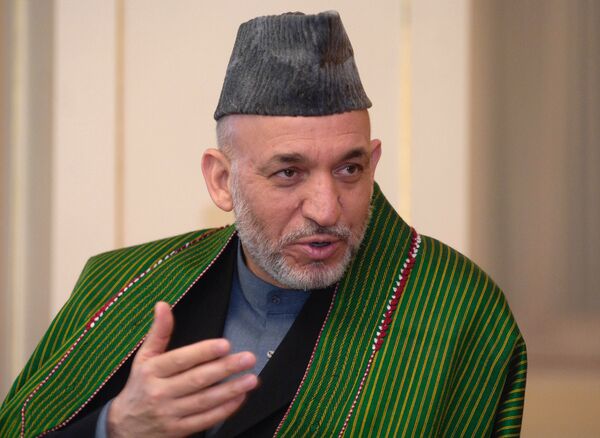At their latest conference in Kabul, international donors for Afghanistan chose the right option of not wasting time trying to root out corruption in the country, as this seems to be a no-win situation, and to focus instead on restoring stability in the war-torn nation. Toward this end, they endorsed President Hamid Karzai's plan to have Afghan forces take responsibility for security across the country in 2014.
Karzai's plan draws heavily from resolutions passed at a national peace jirga held in the Afghan capital in early June, which identify the nation's priorities for the years ahead, including comprehensive and lasting peace, reconciliation with the Taliban, and the social reintegration of alienated and marginalized groups. It also marks a shift in the government's policy toward the insurgency, away from military confrontation and toward diplomacy and recognition of the insurgents' civil rights.
International forces serving in Afghanistan have been stretched to their limit by the nine-year war, while taxpayers back home are reluctant to keep supporting this open-ended campaign with unclear goals. The Obama administration and the governments of other major donor countries have even suggested that they may withhold aid until Afghanistan provides guarantees that the money is not lining the pockets of corrupt government officials, drug traffickers, and terrorists.
Yet, despite all their reservations, the donor countries approved Karzai's peace initiative, which offers a realistic program for national reconciliation through civil institutions, seen as the main driving force for reintegrating marginalized Afghans in their communities. They also agreed there must be better coordination between local, regional and international efforts to restore peace and stability, and that Kabul should have final say on the strategy.
However, NATO appears prepared to remain in Afghanistan until Afghan security forces are capable of providing security.
"Our mission will end when - but only when - the Afghans are able to maintain security on their own," said NATO Secretary General Anders Fogh Rasmussen.
Keen on securing more international aid, Mr. Karzai pledged that the Afghan army and police will be ready to take over security in all of the country's 34 provinces in 2014. The date does not look realistic as a deadline for the final withdrawal of international forces from Afghanistan, but it may become a starting point for the transfer of control to Afghan forces. U.S. Secretary of State Hillary Clinton hinted, however, that the United States may start drawing down its troops as early as July 2011.
It was not until Karzai's inauguration speech following his November 2009 reelection that Kabul began to take the lead in shaping the priorities of Afghanistan's national development strategy. The Afghan president said at the time that peace and national reconciliation would be the main priorities of his government. At the subsequent peace jirga, a decision was made to begin negotiations with insurgents. This decision was made despite strong opposition from Western governments.
Hopefully, Karzai's plan is more than just a declaration of intentions, and words will translate into deeds. This will depend, among other things, on whether the new commander of NATO and ISAF forces in Afghanistan, Gen. David Petraeus, is provided with all the necessary resources. His predecessor, embattled Gen. Stanley McChrystal, knows only too well the disastrous consequences that shortages can create.
RIA Novosti political commentator Pyotr Goncharov
The opinions expressed in this article are the author's and do not necessarily represent those of RIA Novosti.



